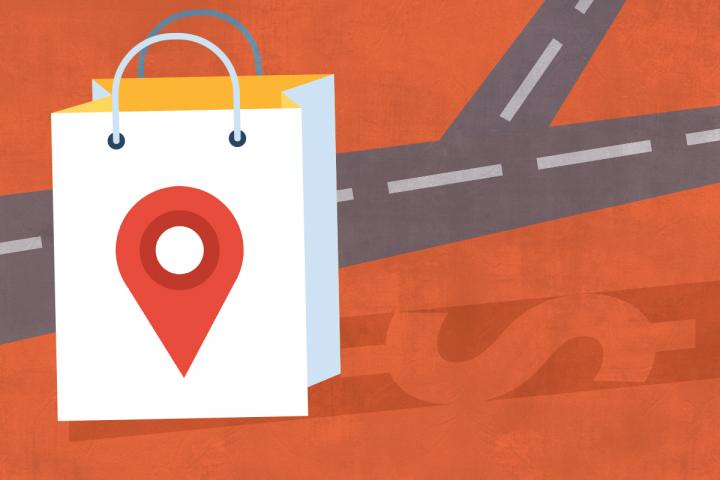Online shopping might not be as green as we thought

A study by researchers in the Delaware Center for Transportation provides insight into the impacts of home shopping on vehicle operations and greenhouse gas emissions. Image by Jeffrey C. Chase/ University of Delaware
Logic suggests that online shopping is “greener” than traditional shopping. After all, when people shop from home, they are not jumping into their cars, one by one, to travel to the mall or the big box store.
But a multi-year regional study at the University of Delaware suggests that home shopping has a greater impact on the transportation sector than the public might suspect. The results of the research are documented in a paper, “Impacts of Home Shopping on Vehicle Operations and Greenhouse Gas Emissions,” in the International Journal of Sustainable Development and World Ecology.
The study, which focused on the city of Newark, Delaware, was led by Arde Faghri, professor in the Department of Civil and Environmental Engineering and director of the Delaware Center for Transportation (DCT).
The project included data collection through a survey to identify shopping behavior and summary of the survey results by product category, followed by simulation and analysis.
“Our simulation results showed that home shopping puts an additional burden on the local transportation network, as identified through four measures of effectiveness — travel time, delay, average speed, and greenhouse gas emissions,” says co-author Mingxin Li, a researcher at DCT.
While it's true that e-stores require less space and use less energy, Faghri points out that online shopping puts more delivery trucks on the roads, which translates into more wear-and-tear on pavements and increased environmental pollution through the emission of fine particulate matter from diesel engines.
An additional problem is that residential and downtown streets were not designed to accommodate frequent truck stops, parking, loading and unloading, so trucks can interfere with through traffic, causing delays and compromising safety.
But what may be the most surprising finding of the study has nothing to do with increased truck traffic.
“We found that the total number of vehicles miles traveled hasn't decreased at all with the growth of online shopping,” Faghri says. “This suggests that people are using the time they save by shopping on the internet to do other things like eating out at restaurants, going to the movies, or visiting friends.”
Faghri cautions that his study looked only at residential commerce, not purchases made by commercial and industrial businesses, and that the data his team collected was limited to a very small geographic area.
However, he emphasizes that local, state, regional, and national planners need to keep a close eye on the impacts of the home shopping trend when planning and budgeting for infrastructure needs.
“The increase in online shopping also affects land use patterns such as the number and size of stores in large shopping malls with vast parking spaces, as well as changes in labor markets, with, for example, less demand for sales personnel and more for truck drivers,” he says.
Media Contact
All latest news from the category: Studies and Analyses
innovations-report maintains a wealth of in-depth studies and analyses from a variety of subject areas including business and finance, medicine and pharmacology, ecology and the environment, energy, communications and media, transportation, work, family and leisure.
Newest articles

First-of-its-kind study uses remote sensing to monitor plastic debris in rivers and lakes
Remote sensing creates a cost-effective solution to monitoring plastic pollution. A first-of-its-kind study from researchers at the University of Minnesota Twin Cities shows how remote sensing can help monitor and…

Laser-based artificial neuron mimics nerve cell functions at lightning speed
With a processing speed a billion times faster than nature, chip-based laser neuron could help advance AI tasks such as pattern recognition and sequence prediction. Researchers have developed a laser-based…

Optimising the processing of plastic waste
Just one look in the yellow bin reveals a colourful jumble of different types of plastic. However, the purer and more uniform plastic waste is, the easier it is to…



